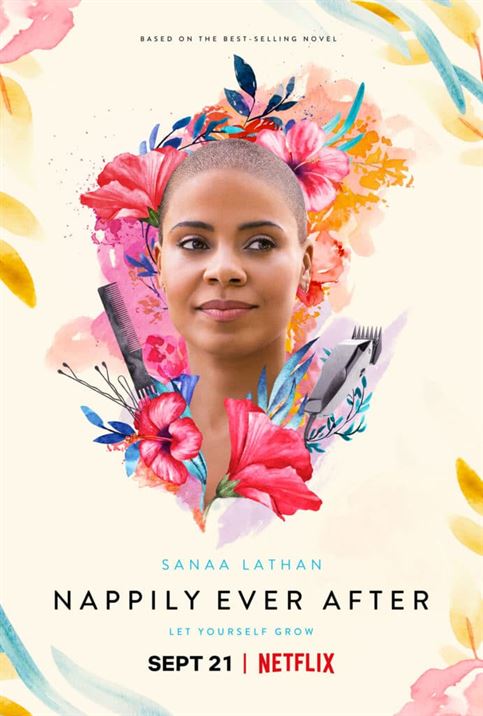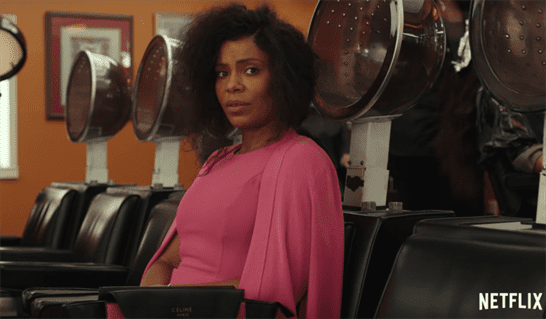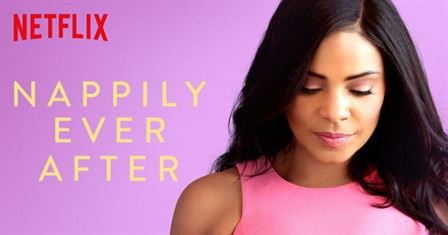For many women, their hair gives them the freedom to express themselves. However, in a world that appeals to white beauty standards, black women are often put down for their natural hair. With the popularity of the “big chop” movement that encourages black women to buzz their hair to regrow it naturally, the Netflix film “Nappily Ever After” could not have come at a better time.
Based on the book of the same title by Trisha Thomas, “Nappily Ever After” hit Netflix on Sept. 21. Growing up with a black mother that constantly had to worry about maintaining her hair made me understand how much of a struggle it can be. My experience growing up led to high hopes for this movie to deliver a message that encouraged black women to love and embrace their hair, which I felt it did.
When the audience is introduced to Violet Jones, played by Sanaa Lathan, she is a child that wants to swim with the rest of the kids, but her flat ironed hair holds her back. That is until she decides to jump in despite the inevitable condemnation she is bound to receive. It was the perfect way to start off this film because this experience is all too real for black woman who maintain their hair with chemical processing.

“Nappily Ever After” is based on the book of the same title written by Trisha Thomas. Photo courtesy of Netflix
As the film progressed, I felt bored with the common rom-com plot. Violet’s mother Pauletta, played by Lynn Whitfield, is the stereotypical perfectionist mother that desperately wants her daughter to be married. Violet expects a proposal and instead receives a dog, which leads her to spiral downward. The last part of this downfall is her own “big chop.” The scene in which Violet takes this dramatic turn that attempts to be powerful but comes off as borderline hysterical.
After she cuts her hair, Violet goes from turning heads to being bumped into as if she is invisible at her workplace. I could not help but to feel that this was exaggerated greatly. Even though it is dramatic, looks tend to gain you respect and attention in a shallow world. Women are fed the idea that their hair equates to beauty.
From that point, the movie became increasingly intriguing to watch because Violet navigates this new chapter in her life.
As Violet begins to accept her new look, she explains to her friends, “I am so used to looking at myself in the mirror all the time and now I never do.”
I appreciate how the movie derails from the over-played romantic comedy. Rather, the focus becomes Violet’s journey to empowerment.

“Nappily Ever After” premiered Sept. 21 on Netflix. Photo courtesy of Netflix
It is easy to feel that the movie is against what black women have done to maintain their hair, but this is addressed toward the end when Violet is pitching a natural hair product to a black hair company. She reminds them that it is okay to have a weave or wig but stresses the importance of loving their natural hair and providing the option to do so. The audience gets to see Violet live out her “Nappily Ever After” in the end as she is walking out of her pitch meeting genuinely happy.
Director Haifaa al-Mansour successfully made a romantic comedy that goes beyond the typical storyline of the love between a man and a woman. “Nappily Ever After” is a movie that shows the transformation arc of a woman that goes from faking confidence to truly believing in herself.



